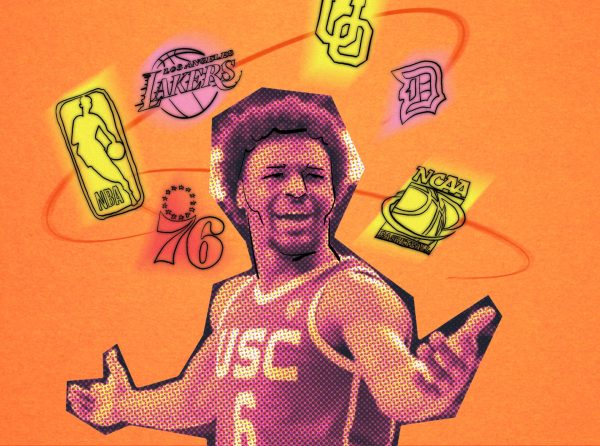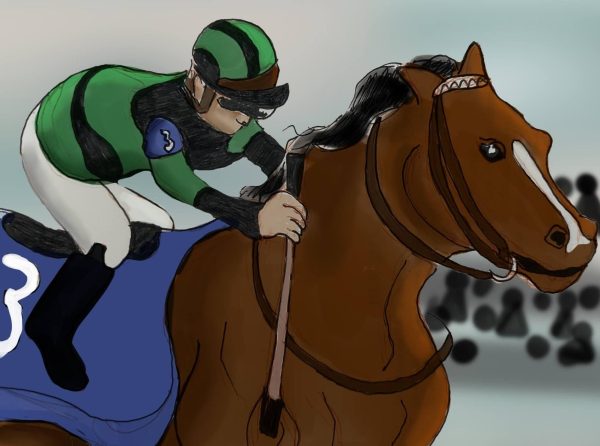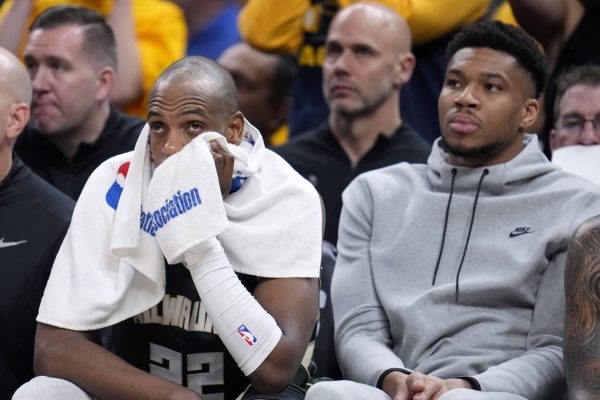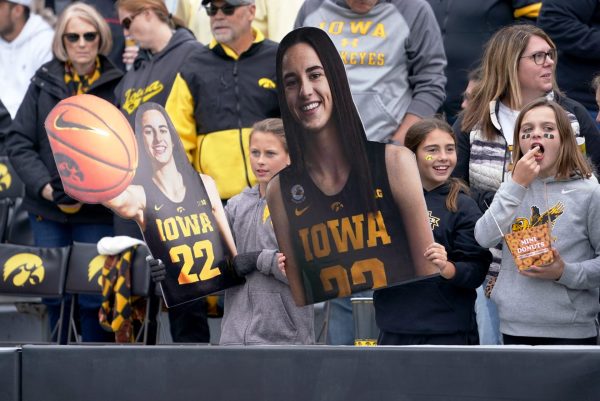Pelé’s death impacts the soccer community at DePaul
Three time World Cup champion, and Brazilian top goal scorer O Rei “The King” left the scorer world on December 29, 2022.
On Dec. 29, the global soccer community sadly lost one of its biggest icons shortly after the World Cup ended. Brazilian soccer player Edson Arantes Nascimento, commonly known to the world as Pelé, died due to organ failure at the age of 82 after battling colon cancer since September 2021.
Growing up in Brazil, Pelé learned about soccer from his father and signed with the Santos Football Club in June 1956. This propelled his career as he was on the Brazilian national team at age 17 and won the 1958 World Cup. Pelé additionally won World Cups in 1962 and 1970 and is the only player to win three World Cups.
In those 14 total combined World Cup matches, he scored 12 goals. After his international playing career, he chose to come to the United States from 1975 to 1977 when he signed with the New York Cosmos. In total, Pelé scored an impressive 1,281 goals in his career, according to FIFA.
Pelé was an impactful figure to a wide range of soccer fans including DePaul’s soccer team. His skill continues to resonate with fans and players to this day.
DePaul sophomore men’s soccer player Gandhi Cruz said Pelé’s legacy was one of the reasons he got into soccer and remembers finding out who he was as a little kid.
“I’d try to find any clips I could find of him,” Cruz said.
For other players, Pelé revolutionized the game of soccer based on his ‘flairy’ style of play, which caused him to be recognized and known as one of the world’s greatest soccer players. He revolutionized the game of soccer by being somewhat of an artist with the ball at his foot and was able to creatively get the ball past defenders and score goals. Pelé’s skill was far superior than his opponents and they weren’t sure how to stop him.
DePaul sophomore men’s soccer player Santiago Dávila said he thinks Pelé was the first superstar in the sport.
“He did things with the ball that nobody had seen anyone do on the soccer field before,” Dávila said. “When I watch his highlights, it’s pretty cool to see how he started revolutionizing the game as the first guy to really become a superstar.”
Pelé was known for unique moves that no one else could replicate, which made him a very effective player.
“He was definitely considered one of the best of all time just because of the fact that he was doing things that nobody would really do on a normal day,” Cruz said. “He was always known as the star just because he would always pull out tricks and stuff out of the bag that not a lot of people would do on the field.”
Not only did Pelé change the way the game was played on the field, but he also represented a change in society for paving the way for players of color.
DePaul assistant professor of sports communication Vincent Peña said Pelé influenced and provided representation for kids and soccer players around the world because he was a professional soccer athlete of color.
“He was dominating on the soccer pitch, beating European countries as a Black man in the ‘50s, ‘60s and ‘70s, and so that can’t be ignored because not just a couple decades before that, we were breaking the color barrier in our own leagues,” Peña said.
Pelé’s death just after the World Cup hit the soccer world hard because of his influence on the game. Regarded as one of the greatest players to live, it is tragic to think of the world of soccer not being able to see him on the same field again.
“When you say his name, it evokes the greatest that the sport has to offer, much like Michael Jordan or LeBron or someone like Serena [Williams],” Peña said. “It carries so much importance, especially someone like him who kind of made the game or at least is credited with making the game international.”
Pelé’s international dominance and popularity, along with coming to the United States late in his career, made soccer a more popular sport here than it was in the past.
While his death shocked players who drew some inspiration from him, they continue to appreciate and feel his impact on the sport.
“He’s considered one of the greatest of all time, so it was a little sad just because he has so much history in this sport and he’s one of the only few players that won three World Cups while he was playing,” Cruz said.
Pelé’s death also caused players affected to reflect and realize what he truly meant to the game of soccer.
“When [his death] happened, I just sat there and thought about the impact he had on the soccer community in general,” Dávila said. “I think if he had never played in the United States, I don’t think the sport would have advanced as much as it did back then.”
Pelé’s iconic status and role in making soccer the sport it is today left people understandably grieving when he died, but the overflowing amount of sadness across the world shows how great and influential he truly was. He made an impact on the world and his own past successes along with inspiring those who came after him will continue to live on.













